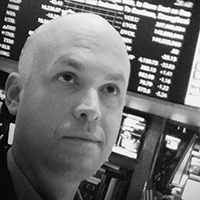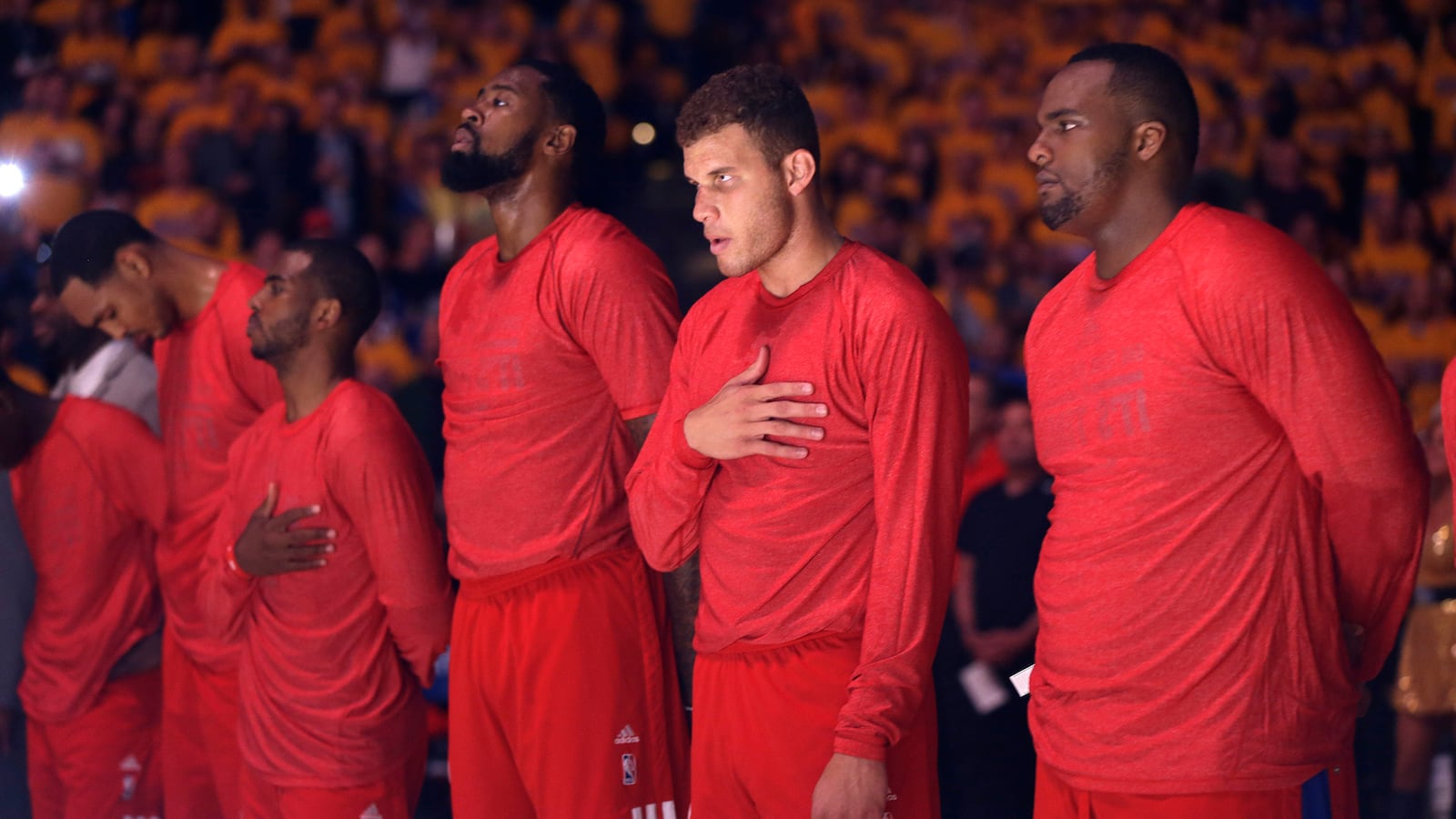Every team has a defining moment during the season. For the Los Angeles Clippers, that moment is likely Tuesday night. With the series against their cross-state rival the Golden State Warriors knotted at two games, a loss will be tough to recover from. A win would keep them on track to reach their first NBA finals in team history. The game also marks a defining moment for the Clippers organization—it will be the first time the Clippers play at the Staples Center since their owner, Donald Sterling, was exposed as a racist. Depending on how NBA Commissioner Adam Silver handles his first major crisis, the Sterling scandal could be either the beginning of the end of the Clippers or the final step on their ascendancy to the throne of Los Angeles basketball.

Even with the third-best record in basketball, the Clippers still struggle for the hearts and wallets of Los Angeles. With their 57-25 record and two of the most dynamic players in the NBA, the team had only the eighth-most expensive NBA tickets, four places behind Staples Center venue-mates the Lakers. While that may be hard to fathom, the 20 percent discount the Clippers offer represents a major step forward for L.A.’s “other” basketball team. Just four years ago, the average price for Clippers tickets on the secondary market was less than half that of the Lakers. This season, even with a superior team and their best chance at postseason success, they still lost the battle for attention and dollars to a 27-win Laker team. Of course, the Clippers now have more attention than they could possibly want, and what happens in the next few days could not only make or break their season but also their viability as a franchise.
In the last 48 hours, at least five sponsors have pulled out or suspended their support of the team, including CarMax, State Farm, Kia, Virgin America, and Red Bull. The total impact of those pullouts could be as high as $20 million a year. According to Forbes, the Clippers generated $128 million in revenue last year, so losing $20 million would be a 15 percent hit. If the NBA lets Sterling keep ownership of the Clippers, however, that loss could just be the start. Ticket sales, concessions, and swag—all revenue generated from people attending games—account for another $75 million, and despite a modest increase in prices for Game 5, fans may jump ship in 2015, leaving the organization with a revenue hole that can’t be replaced.
Asked if there’s anything the Clippers organization could do to induce him to return next year, Clippers coach Doc Rivers was noncommittal. After the players’ pre-game show of solidarity Sunday, that seems to be a sentiment they share. While both Blake Griffin and Chris Paul are locked in to multiyear deals, a public disavowal of the organization would likely be enough to keep fans away. The players could even go so far as to tell fans simply not to come to games. That would make the $40 million in salaries owed each year to the Lob City Duo enough to put the Clippers deep into the red. From there, it could be a death spiral and perhaps even a descent back to the era of the San Diego Clippers, the team Sterling owned for three years before moving them to Los Angeles. In his first season as owner of the San Diego Clippers, the team drew a paltry 4,344 fans a game. Even after their move to Los Angeles, it was a struggle for the Clippers to draw, especially next to the megawatt spotlight of the Lakers. Over the last few years, though, the spotlight has been slowly shifting. With their 2014 season, despite no major victories or titles, it seemed that the Clippers’ Lob City had at least earned a spot at the table next to the Lakers’ Showtime in the pantheon of L.A. basketball. The Lakers won five championships during the Showtime era, led of course by Magic Johnson—the very man Sterling named in his leaked recording. During the Showtime era, Lakers games became a must-see event that attracted fans and celebrities alike. The economic legacy of that era was no more evident than this season, with fans willing to pay an average of more than $200 a game to see one of the worst teams in the NBA.
Since his Showtime days, Johnson has built a multibillion-dollar entertainment empire that most recently turned around another dysfunctional Los Angeles sports team at a crossroads, the Dodgers. Under Johnson’s ownership group, the Dodgers schedule is now filled with sellouts, and they are a World Series contender this season. In 2014, more fans will attend games at Dodgers Stadium than any other stadium in Major League Baseball. In addition to the Dodgers, Johnson and his investment group recently purchased the WNBA’s L.A. Sparks. It’s also widely rumored that he is lobbying the NFL to bring a franchise to the city. While Johnson has made overtures to the Buss family about buying the Lakers, he’s been firmly rebuffed and unable to expand his sports empire into the sport that made him famous. Ever the entrepreneur, he now is using the Sterling fiasco to put his name back into the NBA ownership conversation, and several sources have reported on his explicit interest in buying the team. If Sterling has any intelligence whatsoever, he should recognize that Johnson is his best exit plan.
The last Forbes valuation pegged the Lakers team value at $1.3 billion, 65 percent higher than the Clippers’ $575 million valuation. With Magic Johnson at the helm, the Clippers not only would be able keep their core duo but would also be able to attract another player or two seeking to bask in the new owner’s glow. The result would be a new era in Los Angeles basketball that would likely create more valuation parity between the Clippers and the Lakers, and potentially more championships. It would be a storybook ending to one of the ugliest chapters in history of American sports ownership. The alternative could be a death spiral for one of the most exciting and likable teams in sports, and a stain that the NBA may never be able to wipe clean.






